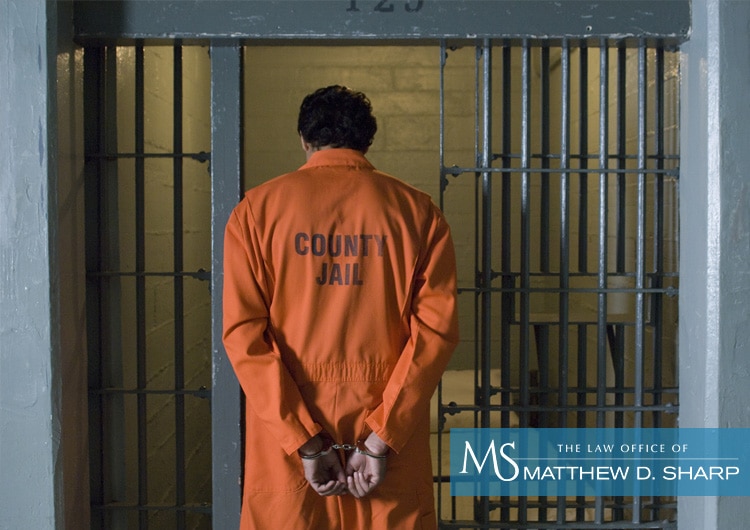Checking Out Why Bail Bonds Are Essential in the Lawful Process
Bail bonds serve a critical function within the lawful system, helping with the fragile balance in between private legal rights and societal security. By allowing accuseds to secure their launch while awaiting test, these economic tools not only maintain the presumption of virtue but likewise minimize the stress on correctional centers (San Marcos bail bonds). Nevertheless, this system is not without its intricacies and implications for numerous stakeholders. Recognizing the multifaceted function of bail bonds welcomes a closer evaluation of their effect on both offenders and the broader justice system. What nuances lie under this essential element of lawful proceedings?
Comprehending Bail Bonds
In the legal procedure, bail bonds serve as an important system that permits people billed with crimes to safeguard their release from custodianship while waiting for test. A bail bond is basically a monetary assurance offered by a 3rd party, normally a bondsman, which makes sure that the implicated will appear in court at the marked times. When a court establishes a bond amount, it reflects the seriousness of the charges and the regarded flight risk of the defendant.
Individuals that can not manage the complete bail amount may transform to bail bondsmen, who bill a non-refundable cost, typically around 10% of the complete bail. This cost makes up the bail bondsman for presuming the danger of the defendant potentially failing to show up in court. If the accused does not adhere to court looks, the bondsman may use different methods to locate and nail the individual.
Bail bonds play an essential duty in the criminal justice system by stabilizing the rights of the accused with the demand to guarantee public security and court honesty. Recognizing the technicians of bail bonds is important for any person navigating the intricacies of the lawful landscape.

The Function of Bail in Justice
Bail acts as a fundamental column within the justice system, balancing the presumption of virtue with the requirement to guarantee court presence. bail bonds San Marcos. By allowing offenders to stay free while waiting for trial, bail recognizes that individuals are innocent until tried and tested guilty. This vital principle advertises fairness and justice, as apprehension before trial can exacerbate social inequalities and interrupt lives

Additionally, the bail process permits judges to assess the conditions of each case, consisting of the nature of the costs, the accused's background, and neighborhood connections. This personalized analysis makes certain that bail decisions are not solely revengeful yet are rather reflective of the concepts of justice and equity, therefore enhancing the stability of the lawful system.
Advantages for Accuseds and Families
The advantages of bail prolong past the court, significantly affecting defendants from this source and their family members. By securing bail, accuseds are afforded the possibility to stay in their communities while awaiting test, which can significantly minimize the psychological and financial stress and anxiety connected with imprisonment. This flexibility allows people to preserve employment, sustain their family members, and fulfill necessary responsibilities, eventually contributing to their overall health.
For households, the implications of securing bail are profound. It allows them to remain together throughout a challenging time, fostering a support group that is crucial for emotional durability. Households can participate in the legal procedure better, as they can seek advice from lawyers, collect proof, and plan for court hearings without the added problem of splitting up.
In addition, having a liked one launched on bail pop over here can minimize the monetary pressure that frequently comes with legal battles. Family members can allot resources toward lawful charges and other requirements as opposed to incurring costs connected with imprisonment. In general, the accessibility of bail bonds serves as a vital lifeline for defendants and their households, promoting security and unity during a troubled duration in their lives.
Impact on Court Efficiency
By facilitating the release of offenders before test, bail bonds considerably boost court efficiency. When accuseds are able to secure jail without bail bail, they are less likely to stay incarcerated, which consequently minimizes overcrowding in jails and detention centers. This relief of congestion allows police and court workers to allocate resources much more efficiently, focusing on active situations rather than handling a backlog created by pretrial apprehensions.
Furthermore, when accuseds are released on bail, they can much better get ready for their legal proceedings. This prep work commonly results in much more informed conversations between the defendant and their lawful guidance, resulting in an extra streamlined judicial procedure. As accuseds are much more most likely to go to court hearings when they are not confined, the price of missed court days decreases, adding to a much more organized court routine.
Additionally, the punctual resolution of cases is promoted as accuseds are encouraged to take part in their tests actively. This not just speeds up the lawful process yet also aids keep public self-confidence in the justice system. Ultimately, making use of bail bonds offers a double objective: guaranteeing that offenders can join their protection while at the same time advertising a more effective judicial structure.
Alternatives to Bail Bonds
Numerous options to typical bail bonds exist within the legal structure, each offering unique systems for pretrial launch. One such choice is release on recognizance (ROR), where accuseds promise to show up in court without the need for monetary bail. This choice is often offered to people regarded low-risk, promoting fairness in the justice system.
One more option is using supervised release programs, which include checking defendants through check-ins with a pretrial services policeman. These programs might include problems such as curfews or electronic monitoring, making sure conformity and lowering trip risk.
In addition, some jurisdictions execute diversion programs that focus on rehabilitation instead than revengeful steps. Offenders may participate in social work or counseling as a problem of their release, resolving underlying concerns while decreasing imprisonment.
Last but not least, bail funds developed by not-for-profit companies offer financial aid to low-income offenders, allowing them to protect launch without the concern of high fees connected with traditional bail bonds. These alternatives stress the relevance of stabilizing public security with the legal rights of the accused, ultimately contributing to an extra fair legal process.

Conclusion
Bail bonds offer as a fundamental part of the legal process, personifying the principle of assumption of innocence while ensuring accuseds retain their liberty prior to trial. By incentivizing court presence and minimizing jail overcrowding, bail bonds facilitate a lot more reliable situation prep work.